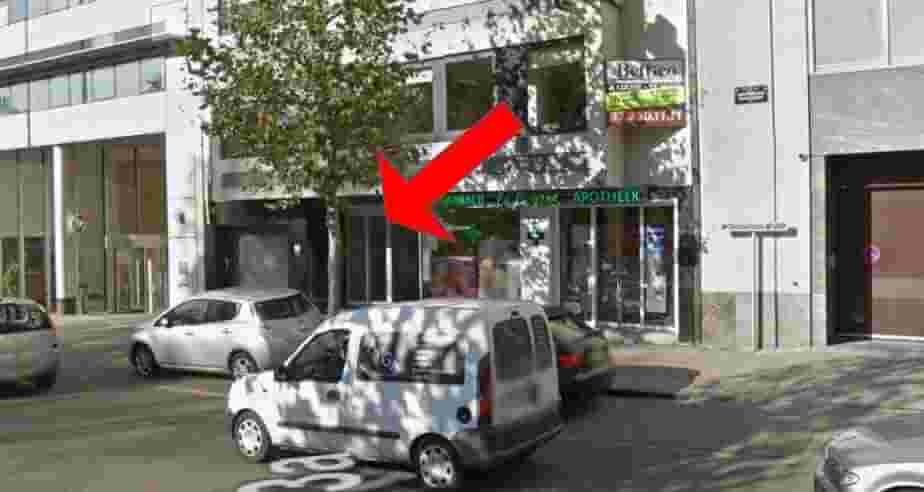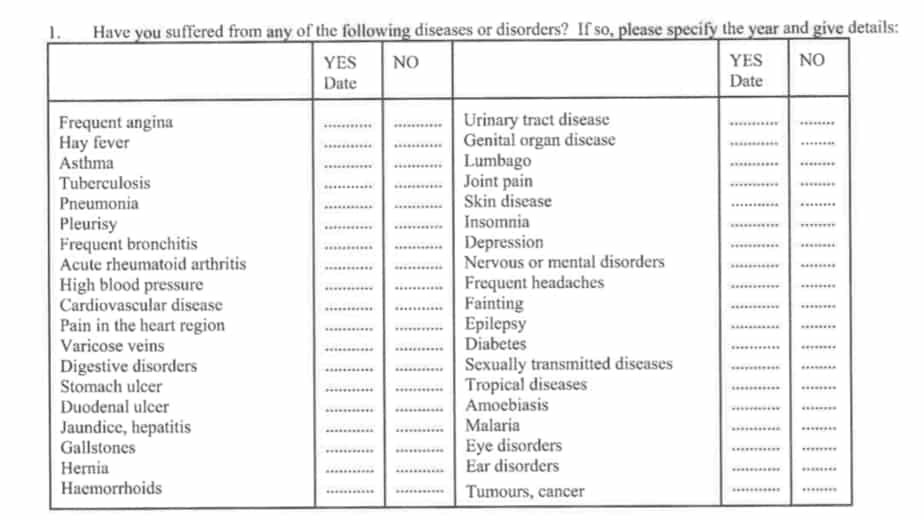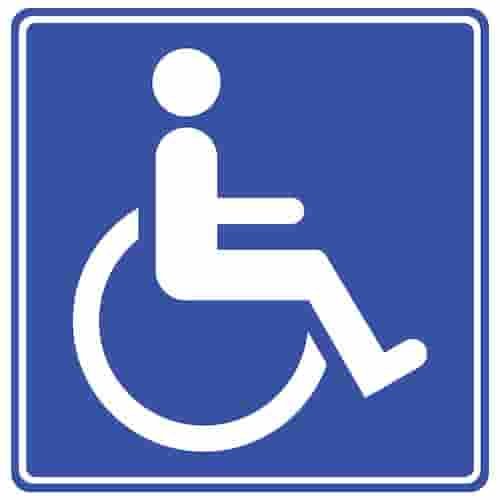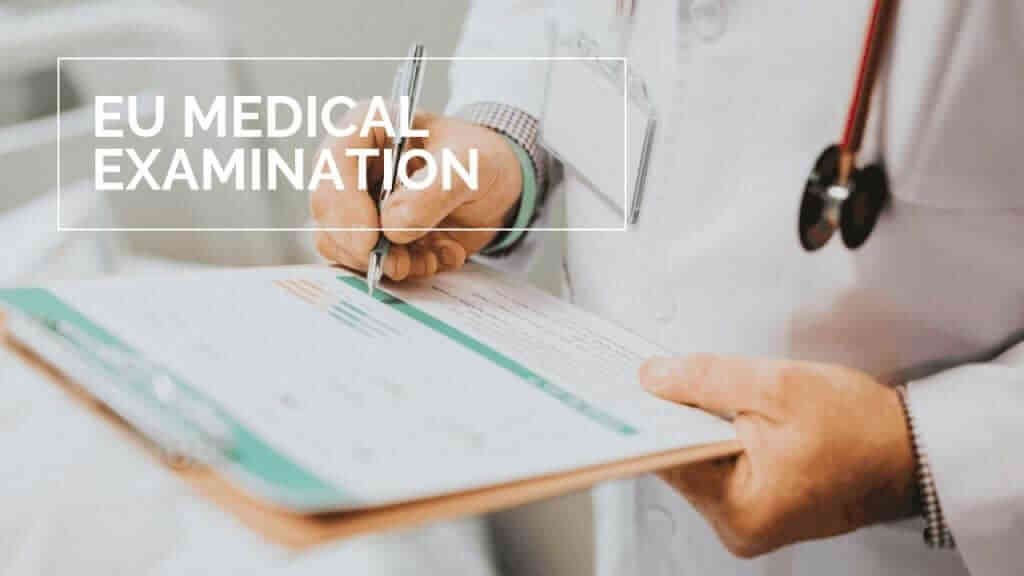All successful applicants for an EU job have to undergo a medical examination before taking up duties. The medical examination is necessary for two reasons: 1) to establish that a candidate is “physically fit to perform his duties”, and 2) to establish a health baseline so that an employee would hold the European Commission or another EU institution accountable for issues that existed before starting the job.
The medical examination usually takes place 2-4 weeks before starting your employment. Attending and passing the medication examination is a prerequisite to signing your employment contract.
This article will help you to understand what to expect and how to prepare for the health check-up, as well as answer some of the most common questions.
Location and travel
The medical examination usually takes place in Brussels, but can also take place in the location of your institution if it has procured the necessary services locally. Irrespective of where the medical examination takes place, you most likely have to take a holiday and plan an extra trip there before the start of employment.

The medical examination in Brussels takes place at the European Commission’s Medical Service, building BREYDEL 2 – office 6/508, 19 avenue d’Auderghem, 1040 Brussels. It is a 10-minute walk or one metro stop away from the Schuman roundabout. The entrance is quite inconspicous so don’t walk past it. Check out the full Google Street View in advance.
What to expect?
Arrival time at the medical centre
Usually you’ll have to be at the medical examination centre at 8:00 AM as the first procedure is a blood test and the lab supposedly closes at 9AM. Because of a blood test, you are required to stop eating at 22:00 the evening before.
I arrived a 8AM sharp and there were already quite a lot of people in the queue, so if you don’t want to wait try to arrive before that. While some sources indicated that the facility opens at 8:00, it apparently is open well before that. I’d recommend to arrive at 7:30 at the latest.
Having arrived at 8:00, I was anyway finished with everything except the ophthalmologist in two hours by 10:00, including the wait in queue.
The ophtalmologist took longer than expected. I arrived at the eye doctor’s office that’s in a different building than the medical centre shortly after 10:00. I was informed that the doctor will be there only at 12:00 and there were a few people before my. I was done by about 14:00, including the wait in a queue again.
What tests are administered?
The medical examination consists of the following procedures:
- Blood test
- Urine test (sampled locally at the centre)
- Heart examination (electrocardiogram)
- X-ray of the lungs for smokers (I as a non-smoker was exempted)
- General examination (conversation with a general practitioner, stethoscope, relfex tests, etc., like at your family doctor at an annual check-up)
- Ophthalmologist (eye examination)
Eye examination

As the eye examination takes place in a different address some 500 meters from the medical centre, you have to walk there for the final check-up. The address is Avenue de Cortenbergh 66, Brussels. Plan at least another 1,5 to 2 hours for the eye examination as in my case there was only one doctor present and it took her around 15 minutes to deal with each patient.
Useful tip. Preserve the eye examination results. Once you start working and are enrolled in JSIS, the EU health insurance scheme, you can buy glasses and get reimbursed based on this document.
Medical examination form
Before the general examination (general check-up by a doctor) all attendants have to fill a fairly detailed health assessment form.

An older version of the form presented at the medical centre can be found here. The layout of the most current form differs slightly, but it has the same contents as the form available for download above. If you have had lots of medical procedures or have a serious health condition, it’s best to take key documentation with you.
Expanded list of questions that might require advance preparation
The examination questionnaire is fairly detailed. There are plenty of questions, where, if you happen to have a particular condition, it wouldn’t be possible to recall the necessary information from the top of your head.
This is a list of questions you probably should go through a week before the medical examination. I suggest that you write down the answers so as to have them available on the medical examination day.
- Has any of your family members (father, mother, siblings) suffered from cardiovascular disease, respiratory disorders, mental illness, neurological disorders?
- Give details of any medical condition for which you are currently being treated.
- Have you ever been treated in a hospital or at a clinic? Where, when and for what reason?
- Have you ever undergone surgery? Specify nature of operation(s) and date(s).
- Have you ever been absent from work for more than a month because of ilness? When? What was the ilness?
- Do you have a partial permanent incapacity for work following an accident or illness? When? Nature of the disability?
- Have you ever consulted a neurologist, psychiatrist, psychoanalyst or psychotherapist? When? Nature of the disability?
- Have you ever undergone treatment for alcohol or drug addiction?
- Do you regularly take any medication, including oral contraceptives?
- Have you ever undergone radiological or nuclear medicine examinations? Which examinations?
- Have you undergone courses of radiotherapy or chemotherapy? Specify treatments.
- Have you ever had an industrial accident or suffered from an occupational disease?
- List any occupational or other hazards to which you have been exposed?
As you see, lots of information is requested as part of the examination, part of it can be quite detailed. If you answer with a “YES” to any of the questions, you are requested to indicate when the disorder/disease/incident/procedure took place and other details. Be sure to download and check the form at least a week before your visit at the medical centre as you might need to hunt down health documentation to be able to fill out the form completely. Most institutions’ HR units don’t mention that the information requested will be this detailed.
Consequences of the European Commission medical examination
Article 28 (e) of the Staff Regulations states that a candidate must be “physically fit to perform his duties”. So, theoretically, one can fail the physical evaluation. However, in practice, the European Commission and other EU institutions and agencies are equal opportunities employers and have a fairly high threshold when it comes to health issues.

What if I have a disability?
A serious medical condition or a disability is not a reason to avoid applying for a job at the European Commission or another EU institution.
If a person “can perform the essential functions of the job when reasonable accommodation is made” he/she has passed the European Commission standard of qualification for a general office job post. ‘Reasonable accommodation’ in this regard means appropriate measures in relation to the essential functions of the job so that the person with a disability can have access to, participate in, or advance in employment, or to undergo training, unless such measures would impose a disproportionate burden on the employer. (Source: Article 1d(4) of Staff Regulations).
In practice this might mean that you cannot work as a security guard if you have a particular physical disability that does not allow you to perform typical duties of the job. However, with the same disability you would qualify as an office worker where your main work instruments are your brain and a laptop. I’ve had at least one colleague with a serious physical disability, but it was no issue for the person to fulfill the tasks of an AD5 temporary agent.
Access to some benefits restricted for 5 years
While persons with a serious ilness and disability are entitled to coverage by JSIS, the European Commission health insurance scheme, there is a limitation if the condition existed before taking up an EU job.
Where the medical examination made before an official takes up his duties shows that he is suffering from sickness or invalidity, the appointing authority may, in so far as risks arising from such sickness or invalidity are concerned, decide to admit that official to guaranteed benefits in respect of invalidity or death only after a period of five years from the date of his entering the service of the Union.
Article 1 of Annex VIII to the Staff Regulations
In practice this means that a new EU institutions employee would be able to benefit from a number of social security measures after he/she has been in a job for five years. These suspended benefits would include at least the following:
- Insurance against the risk of death and of invalidity occurring during employment
- Entitlement to an early pension due to an occupational safety hazard
- Survivor’s pension for one’s spouse and orphan’s pension for a child
Failure to show up or not taking the job despite passing the medical examination
If you do not undergo the medical examination at the set date without a strongly justified reason, the particular EU institution will most likely withdraw its job offer. If for some justified reason you are not able to attend the medical examination, inform the respective institution’s HR unit immediately, try to agree on a different examination date and document and present the reasons why you were not able to attend the medical examination at the initial date.
If you undergo the medical examination and cover the associated travel and other costs, but end up not taking the job, the particular EU institution will most likely not reimburse you for the costs associated with attending the medical check-up.
Costs
You do not have to pay for any of the costs directly associated with the medical examination. It is indeed free of charge and you get the benefit of a thorough health check.
Travel and subsistence costs related to the medical examination will be reimbursed by your prospective employer. However, you have to initially pay for you travel, accommodation and subsistence costs out of your own pocket, and then to submit proof of payment to your institution’s HR unit along with any requested forms (usually, Application for Reimbursement of Travel and Subsistence Expenses, Legal Entity form, Financial Identification form). The forms will be provided by the institution’s HR unit.
Main reimbursement conditions
- Reimbursement of travel expenses generally has a limit of 750 EUR regardless of where the applicant flies from;
- You will be reimbursed only if the distance between the place of residence (as stated in the application form) and the examination centre is over 150 km;
- You can travel by air only if the distance by rail exceeds 500 km (where a sea crossing is necessary, the 500 km limit does not apply);
- Economy flights and other means of transport are preferred by the institutions. If you buy an expensive ticket, be certain that you can justify your choice (i.e., had to fly out after work, no other alternatives);
- Taxi, parking fees and urban transport expenses are usually not reimbursed; these have to covered from the daily allowance amount;
- You can travel with private car, but check the particular rules of reimbursement, including the necessary proof of payment for gas;
- If you are unsure of the rules or have any doubts about travel expenses, get in touch with the institution’s representative that arranged your medical examination.
EU institutions usually offer a subsistence allowance / per diem of EUR 50 per day if the medical centre is at least 150 km from you place of residence. You are expected to cover accommodation (hotel) costs from this amount so either be prepared to sleep in shoddy hotels or get in touch with friends in Brussels.
Do you have question or suggestion for this article? Please share in a comment below and let’s make this resource better for you and other readers!







111 responses to “European Commission Medical Examination”
Hi, thanks so much for this informative article!
I would like to just ask If you know if a history of anxiety, OCD and antidepressants could disqualify a candidate from the job?
Hello Agnes, you will not, but you have to be honest. You will be assigned to a psychiatrist who will ask you a few questions regarding your condition.
I also would advise to disclose at least the main facts about your condition. This might entitle you to more support from JSIS once you are hired.
In one of my previous institutions a significant number of staff were on antidepresants or/and attending psychotherapy. This was never an issue for PMO who manages JSIS or another entity in the EU system.
Hi ben,
Do you know by experience, if taking antidepressant and seeing a psy could generate an invalide exclusion for 5 years ?
Thanks
Should be a problem for most positions. The only positions might be security-linked with a high level security clearance.
Hello all,I hope everyone is well. I am very nervous as my medical exam is this week. I was wondering if I will be disqualified because of cannabis use.
Will this show in the results? Will they disqualify me because of it?
I would really appreciate your feedback on this.
Kind regards,
Ale
I think you will be fine – as long as you commit, once hired, to becoming a champion to legalise the use of cannabis in the EU institutions – and more generally.
I know of some EU staff who could benefit from being a bit more relaxed 🙂
Good luck!
Hahaha thank you so much for you answer, and yes I will commit to it 🙂
🙂
Don’t worry, they do not look for that. Only if one is a heavy user of drugs (certainly not from occasional cannabis use), your liver enzymes may be increased. But usually heavy drug addicts don’t pass EU interviews or concurs
Use of drugs is a question on the questionnaire given to you at the Medical Centre. So theoretically you would have to disclose your use. In practice, disclosure of information is necessary so that the EU institutions are aware of any ‘serious ilnesses’ that get 100% cost reimbursement in JSIS instead of the 80-85% rate. Also – you must disclose disabilities as these disqualify you for 5 years from insurance against the risk of death and of invalidity occurring during employment, as well as entitlement to an early pension due to an occupational safety hazard linked to the disability.
If I remember correctly, the Medical Centre draws a blood sample for testing. But I do not know if they test for cannabis use.
Could you please share with us later if you passed or failed the medical test? I assume this would be of interest to a number of our readers.
Sharing my timeline on this process as it might be useful to others:
30 January: offered job by the selection committee;
20 February: contacted by HR to book the medical examination;
6 March: day of medical examination;
4 April: offer letter received;
So in my case it was over 4 weeks from the medical examination until I received the green light and the offer letter.
Hi there,
Thank you for this informational review.
Any idea if varicose veins (with one surgery for it 10 years ago) can disqualify me from an EU job? 🙁
A bit worried here…
I’d say, no worries! 🙂
Hi Ben,
I live in the USA, and they called me to perform the medical exam.
How about the costs of travelling outside of Europe?
I have read this in the rules, but I am unsure how it works.
“Article 3
If a candidate is temporarily resident at another address, the institution may send the invitation to
that temporary address, which will be used for calculating the contribution to travel expenses.”
“Article 5
3. However, unless an explicit exception is made, when the current place of residence/employment
is located outside the territory of the European Union, the contribution to travel expenses
shall be made solely on the basis of the distance from the capital of the Member State of the
European Union closest to that place.”
Thank you
Hi! I am also unsure how this would precisely work in practice. One of the solutions might be that the institution responsible for your costs reimbursement compares your flight from the US to a flight from Lisbon in Portugal as the closest location to the US, and then reimburses you the cost of this comparison flight. The good thing in all of this is that EU institutions do not use budget airlines for reference, so you might get lucky and get a full flight costs reimbursement if you find a sufficiently cheap airline to get to Brussels to do the medical exam.
Would be great to know how this played out! Could you please report back later?
People in EU Representations in third countries have the same problem, but no one has so far reported back.
Hi Ben,
I have just got offered a job in Brussels, provisional offer by the head of unit. Do you know how long it takes before getting any formal communication from HR about the health check? and how much notice do they usually give candidates before the appointment? I would need to travel to Brussels from East Asia, so this would not be a trip that I could plan with only a few days notice. Thank you in advance!
Hi Marco, I just had my medical examination a few weeks ago.
If a specific appointment does not suit you, you can get back to HR and ask them to reschedule. They will not schedule an examination without your confirmation.
Great thanks! How long did it take for HR to get in touch with you after you were offered the job by the recruitment panel? And how long after you medical examination did you get the results? (just trying to work out a potential start date based on this process – I was offered the job on 31 January but stil haven’t heard anything formally from HR)
Tik, thanks a lot for replying to Marco. Great reply.
Marco, as you are already with “one leg in” the EU system, you are accomodated more than candidates at the start of the selection process.
Regarding timing, it usually takes 2-4 weeks for HR to “process you”, and then you can expect an invitation to the medical centre in another 2 weeks time usually. Agencies move a bit faster on this, compared to the Commission.
When your medical checkup is done, would be great if you could share your experience so that other have more recent info. Thanks!
FYI the result of the medical examination was was available to HR three weeks after the date of examination (January 2023).
Thanks for letting me and other folks know!
Dear Sir,
Thank you for this article. If a person is willing to apply for a job from one of the function groups, is there an obligation to be vaccinated against COVID-19 in order to get the job?
Thank you.
As far as I know, none of the EU institutions ever required vaccination to become or stay employed.
It is definitively not the case at the moment with the general loosening of pandemic-related restrictions.
Dear Ben,
For about 10 years ago, I had a melanoma. I had two small operations, as it was a little spread. However, this was in 2011 and after the operations, I made regular checks like CT-scan and MRI scans. All the scans were okay, no signs of spread cells. I am also now a mother. Would this be an issue for them not to hire me? Or to have restricted medical insurance for 5 years? Thanks for your answer.
Hi everybody! Thank all of you for your useful posts. I want to share another story with you to help anybody that has to undergo through the medical services. My girlfriend has been declared unfit for work because she was under a cancer treatment and on sick leave by the time she had the medical services appointment. Good news, she is back to work and in full remission now, but she was told that she was totally ruled out because her type of cancer had bad prognosis. I wonder if this is discrimination or just that insurance didn’t want to cover her medical bills. So be aware that sometimes medical services can issue total negative notifications. Cheers!
Hi everyone,
I’d like to share my experience for future colleagues who are currently waiting for the medical check-up and /or their results:
Two weeks after my job interview, I received an E-Mail from HR letting me know of my medical appointment. I was told not to eat anything for 24 hours before the check-up as I’d be blood-tested (you can drink water, no problem). The whole examination’s day took me 3h30 and the whole waiting time since my examination’s date until my medical file was closed was only 7 working days.
I had to wait for a bit (15 min) and then my assigned male-nurse came to pick me up to the waiting room and took me to his room. There, he asked me some general questions about my health and told me how the examination would go.
First, I was blood-tested, then he took my blood pressure and sent me to the cafeteria to get my free breakfrast: coffee, juice and a bread with marmelade (it was yummy). Before going to the cafeteria he gave me three different forms which I needed to read, fill in and sign. All of these are in this posts and the most important one is where all the previous-state questions are asked. The only one I had to answer with “yes” was one regarding an STD.
I had my breakfast, filled in all the questions, the nurse came to pick me up and told me to wait for the doctor. After some 20 minutes the doctor picked me up in the waiting room and took me to his consultation room. There, with my documents in hand, he asked me some key-questions, one of them regarding this important document. I told him about my STD and so he asked me its “history” and told me I might need additional examinations once the blood results came out. (I noted this mentally and acted accordingly). He then took again my blood pressure, analysed my ears and told me to wait in the ward for my eye-exam.
My nurse picked me up one last time, ran the eye-test and explained that I might get a fit for work or fit for work with reservations (because of the past STD) and that I even might need additional examinations to verify how the disease currently is in my system.
As I didn’t want to be “put on hold” for the process and that my contract was issued as soon as possible, I immediately called my personal doctor to ask for an appointment and to be blood-tested again to verify that my STD’s VDRL was negative and so I did. Within a week’s time I had already done my specific blood test and had my results in hand waiting for the EC’s medical check-up’s results. Exactly a week after my medical examination I got an email from HR’s medical service telling me that my STD was still shown active and that my file was not closed. As I was prepared I immediately answered attaching my brand-new blood tests showing that the VDRL is negative.
They replied the next day confirming that the results were received, the medical file had been closed and that it now had to follow the standard administrative path of approvals that take additional time (HR’s path now). They also explained that although my new exam showed that by now I am cured, this does not exclude the likely fact that I might have suffered long-lasting complications before it was treated. They added that in order to prevent me from any delays in my recruitment with more exams, I shall get a fit for work with reserevations, whose specific reason is not communicated to HR so that our privacy is not disclosed.
I hope this experience will help others in this same situation and, above all, that it will reassure you. My advice: if you have suffered from any STD’s, go to your doctor as soon as you know your medical appointment’s date so that you can be fully prepared and bring all the possible documents on that date saying you’re ok and ready to take up your duties. That way, you will avoid the long waiting times (which I fortunately didn’t have to go through) and will also prevent any delays in your recruitment process.
Ps. All the medical staff I had to speak to, be it there or through emails or calls were always extremely nice and polite.
Do you know if having multiple sclerosis (without disability) can influence negatively the result of the medical examination?
Hi, I have to pass the medical examination and have been taking HIV antiviral medications for 10 years. Do I have to declare it on the form or will it be discovered anyway during blood test? if I declare it on the form, is it a medical condition which may cancel the job offer? If I do not declare, would it be a problem for the coverage of medicine expenses by JSIS?
Markus, hi! First of all, this is a very specific medical and legal question where you should consult a professional counsellor.
Please treat the below answer as only an opinion without any legal or other consequences.
The fact that you have HIV should not disqualify you from being employed in an EU institution.
I believe that you are obliged to disclose this conditions to the medical centre as it is a serious condition, that might entitle you to 100% of healthcare costs associated with it.
At the same time, you might fall in the category of staff who only become entitled to the death grant and disability pension after 5 years of employment. No other rights should be limited in your case.
It would be very kind if you could report back to us how the medical examination went and whether taking HIV antivirals was an issue for hiring you so that we could include specific information for future readers in a similar situation. Best of luck with the examination and employment!
Dear Ben,
Thank you very much, not only for your thorough article, but also for taking the time to answer our multiple questions.
I had syphillis several years ago but got immediately treated (penicilline shot). After my medical check-up the doctor called me to verify that I was aware of it, since my blood tests showed antibodies, hence the positive, outwardly, is positive. When I explained she said that she’d run some more tests to verify the infection is no longer active.
Do you you think I will get a “not fit for the job” or “fit with restrictions”?
Thank you,
Pepe
Dear Ben,
Thank you for your advice! In fact this is what I am doing, writing emails in order to understand what has happened because, how can I defend myself if I don’t know what is wrong? Just I hope it has been a mistake also because only 13 days have gone from my medical examination to the email received!!. Cheers, Anne
Dear Ben! The medical services tells me that they issued a negative medical opinion without telling me the reasons why, neither giving me my results or anything. They also tells me about the Art 33. Has anybody here ever had such situation? Should I use such “nuclear’ option of the article 33 even if I don’t know how? I am lost and I don’t know what to do now. Many thanks
Dear Anne, at the very minimum try to send emails, bettter still a letter as email might not be considered safe, in respect of personal data protection. A negative decision according to EU administrative law cannot be issued without any justification, and there always has to be a section on how to challenge a negative ruling. Of course, all of this will take time. I, fortunatelly, haven’t had direct experience with negative MedService decisons. Let’s see if another reader can advise.
Hello Ben,
After the medical visit, for the recruitment on March 9th 2022,
I received results for my Blood test and Urine test which showed infections and hépatique problems. I immediately called the EU doctor to see what was wrong with me. He said that I’m very ill, and I can’t work. I should first take care of my health for the moment.
Therefore I went to my family doctor to see what was wrong with me. After analyzing my results and comparing them to my old results from January, he understood there is something wrong with the results from the EU lab, because I am vaccinated for Hépatite B but the EU results show the opposite.
He decided to do a blood test and check the same tests again and do more complimentary tests and send them to a Belgian lab.
The Belgian lab showed different results and, they show that I am healthy and my liver is fine, so according to these results I am able to work.
Those results were as I expected them to be for two reasons. The first one because I was feeling fine and the second one is, I’ve been working for two years as an interim agent and every year I had to do the same medical check. My results were always normal with a hépatite B protection. The last one has been taken in January 2022).
I sent the new results, and the different ancients results show that I am healthy and able to work. But the commission refused to accept the results and invited me to do a second blood test for the EU lab.And after waiting for a long period I received false results for the second time.
This time the doctor of the EU Commission asked for an ultrasound (echography) or an x-ray in order to prove that I am healthy otherwise I won’t be able to work. I did the ultrasound (echography) and the results showed once again that everything is normal and, I am completely healthy with 0 issues.
Until today May 26th 2022 my file still has not been sent to the recruitment department. I wonder what exactly disqualifies me from EU recruitment ?
Could you please help me with this issue?
Thank you
Hi! It’s great that you fought for your rights. However, I’m not sure what procedure you used. The proper way to contest the decision was to use the Article 33 of Staff Regulations, quoted below, but that is a but of a “nuclear” option.
From my experience the one quite effective way to solve this is to get in touch with the HR depatment/division/unit of your prospective employer, explain the situation in writing and ask them to inquire.
If this does not work out and you suspect poor governance, you can try to complain to the EU Ombud. This is free and can be quite effective, although their investigations can take a significant amount of time.
Hi Ben iwant to ask iam diabetes patient from long time i take medicine everyday iam going to Poland with work permit any problem in medical test
If you are going to Poland I assume you are then going to Frontex? If, after taking your medicine, you are able to perform the required tasks, this should be no issue at all to stop you from working for any EU institution.
I’m not certain about this, but diabetes might be one of the ‘serious conditions’, where JSIS reimburses 100% of costs related to it.
Hello!
Does anyone took the medical examination in Bruxelles recently?
How long it took to receive the result?
Thanks and good luck!
As nobody’s replying, I’ll share my 2018 pre-covid experience. The institution got results in about 2 weeks. However, some blogs readers were complaining that during peak pandemic times it took up to 6 weeks to get their results and start working.
Ben, are all autoimmune diseases considered a “serious illness”? If you don’t have confirmed diagnosis but just a suspicion to have or to develop a disease, without enough elements at this point, is it necessary to mention it at all?
If there are limitations to your insurance, for example in case of invalidity, how exactly would it even be possible to conclude if invalidity is due to (for example) an autoimmune disease?
Thanks in advance.
With the caveat that I’m neither a legal, nor medical expert, 1) I can’t answer the question about which autoimmune conditions are considered “serious”; 2) I would not notify about conditions that are not confirmed; 3) in case of invalidity/disability, I assume that one would at first go through any national procedure to get it recognized and then check if it also has to be recognized by JSIS (I assume that if it’s recognized in your country then JSIS recognition is a formality).
Dear sir
Do we have to list all medical specialist we have seen during our life ? And list all disease since we were born ?
Hi! Of course, you don’t have to list all medical conditions or procedures since birth. However, you should disclose all recent or important instances. One of the aims of the medical check is to assess whether you are able to do the tasks required for your new position. However, the medical evaluation is there to identify whether you need any adjustments or other assistance in your tasks. In case you have what’s called a ‘serious medical condition’, once this is registered by the European Commission medical staff, it would entitle you to 100% reimbursement from JSIS instead of the 80-85% threshold.
Hey Ben, can I ask you if a moderate hearing deficiency can exclude you from an EU recruitment? Do you get a tone audiogram during medical exams? I was wondering if there are specific thresholds for hearing or any contact point to learn about them?
Hi, C.P! A hearing deficiency doesn’t disqualify you from EU recruitment. It is a condition that would also be covered by the insurance available to employees of EU institutions.
In fact, just this week EPSO promoted this video about equal opportunities (disability being one of them) on their social media accounts. Worth taking a look!
https://epso.europa.eu/how-to-apply/equal-opportunities
For specific questions it’s best to write to one or all of the contacts below: https://op.europa.eu/en/search-results?p_p_id=eu_europa_publications_portlet_search_executor_SearchExecutorPortlet_INSTANCE_q8EzsBteHybf&p_p_lifecycle=1&p_p_state=normal&queryText=medical+service&facet.collection=EUDir&startRow=1&resultsPerPage=10&SEARCH_TYPE=SIMPLE.
Contact 2: https://op.europa.eu/en/web/who-is-who/organization/-/organization/HR/COM_C